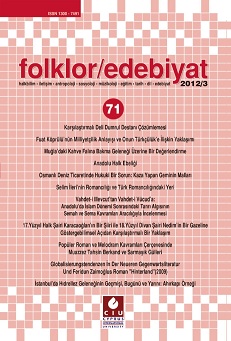Globalisierungstendenzen in der neueren Gegenwartsliteratur und Feridun Zaimoğlus Roman “Hinterland” (2009)
Globalization Trends in Contemporary Literature and Feridun Zaimoglu’s novel “Hinterland” (2009)
Author(s): Dilek Turan YılmazSubject(s): Novel, German Literature, Sociology of Culture, Globalization
Published by: Uluslararası Kıbrıs Üniversitesi
Keywords: world literature; globalization; cross-cultural literature; sense of belonging; cultural identity;
Summary/Abstract: The aim of this study is to draw attention to the concept of “globalization effects” and its literary expression in contemporary literature. As a reflection of the recent cross-cultural works, the term “world literature”, clarified by Goethe, is discussed in contemporary literary studies. In this concept the relationship among the terms of “literature”, “culture” and “globalization” is stated in the literary discourse. This study is focused on Feridun Zaimoğlu and his novel entitled “Hinterland” (2009). Feridun Zaimoğlu, a Turkishorigined author of contemporary German Literature, is an outstanding representative of cross-cultural literature (Migrationsliteratur). His work “Hinterland”, in which he portrays the story of Ferda and Aneschka, a man from Berlin and a woman from Prague, can be regarded as a successful example of this type. These two characters first meet in Prague, then go away from their homes. While travelling, Ferda experiences many facts about other cultures and realizes, that there is a mutual effect between cultures, in other words they act on each other. He also asks himself, what the real meaning of the word “home” is. Is it something concrete or abstract? That is to say, “Does it mean a place or is it just a feeling?” He questions the feeling of belonging to a culture. Feridun Zaimoğlu ends up his novel with these questions. The title of Zaimoğlu’s book “Hinterland”, in which the internal and external fights are dealt with, points to a military term, not to a precisely definable place. In conclusion, all the points mentioned above are interpreted as a literary reflection of globalization trends and analyzed with respect to the post-colonial literary theories.
Journal: Folklor/Edebiyat
- Issue Year: 18/2012
- Issue No: 71
- Page Range: 143-163
- Page Count: 21
- Language: Turkish

